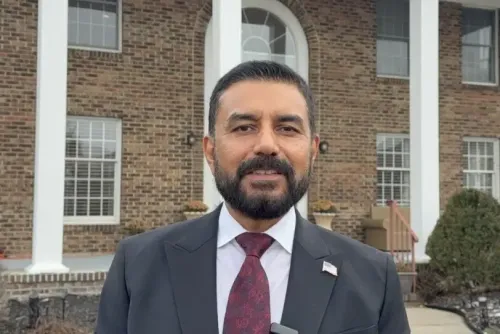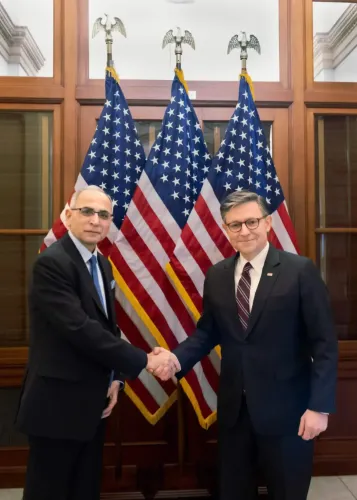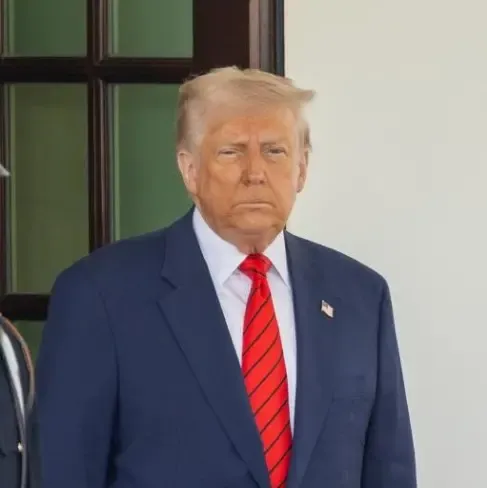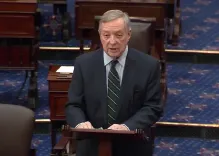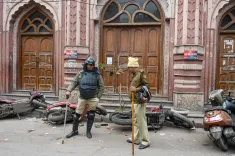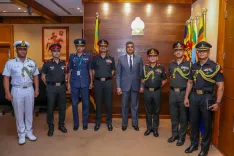What Will Chhagan Bhujbal Achieve with His New Role in Food and Civil Supplies?
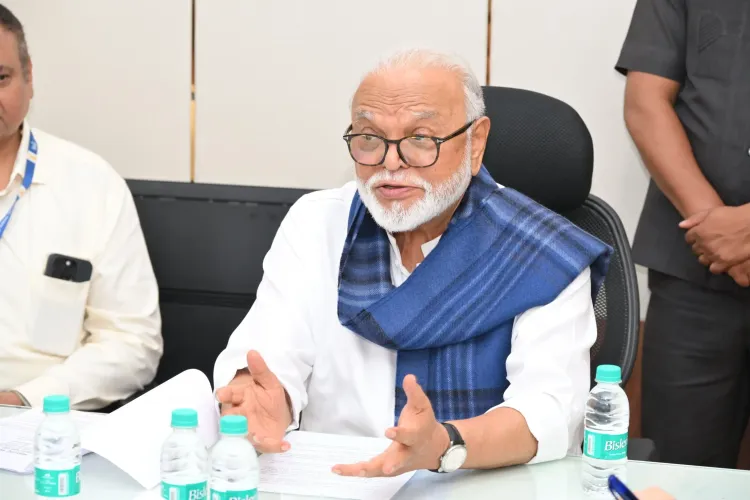
Synopsis
Key Takeaways
- Chhagan Bhujbal has been appointed as the Minister of Food and Civil Supplies.
- The Shiv Bhojan scheme aims to provide meals at Rs 10.
- Emphasis on proper storage of paddy during monsoon.
- Focus on expanding ration card accessibility for the disabled and nomadic tribes.
- Plans for new food grain godowns to increase storage capacity.
Mumbai, May 23 (NationPress) Just four days post his induction into the Maharashtra cabinet, seasoned NCP leader Chhagan Bhujbal has been assigned the food and civil supplies department.
Interestingly, Bhujbal has previously managed this department under both the Maha Vikas Aghadi government led by former chief minister Uddhav Thackeray and the MahaYuti government under chief minister Eknath Shinde.
The state government has issued an official gazette notification confirming Bhujbal's new role.
Upon receiving this important portfolio, Bhujbal expressed his commitment to ensuring the continuation of the Shiv Bhojan scheme, which provides meals at a mere Rs 10. He aims to secure additional funding for this initiative.
After assuming the role as Minister of Food and Civil Supplies, Bhujbal promptly directed the administration to implement measures for adequate storage of paddy, especially considering the impending monsoon season, and to ensure timely procurement of paddy.
“We must act to prevent any loss of paddy,” he emphasized.
He urged the administration to maximize the benefits for the state's residents from the food grains supplied by the Central Government.
Minister Bhujbal convened a meeting with department officials, advocating for the provision of ration cards, particularly for disabled individuals and nomadic tribes who currently lack access to food grains due to unavailability of these cards.
Additionally, he instructed the administration to take action regarding initiatives outlined in the government's 100 and 150-day programmes, focusing on e-governance, administrative reforms, and policies related to the Viksit Bharat 2047 Mission.
During the meeting, Minister Bhujbal reviewed the integration of 25 lakh new beneficiaries, the implementation of smart ration cards, electronic weighing scales in fair price shops, and the verification and stamping of weight scales. Present at the meeting were Principal Secretary Vinita Singal, Brihanmumbai Civil Supplies Controller Sudhakar Telang, Controller of Legal Measurement Ramchandra Dhanawade, Joint Secretary Tatoba Kolekar, Deputy Secretaries Rajshree Sarang, Santosh Gaikwad, and other officials.
The current target set for beneficiaries of the Priority Family and Antyodaya Yojana in Maharashtra stands at 7 crore 16 thousand. Bhujbal has proposed a request to the central government for an increased target of 8 crore 20 lakh, citing the heightened demand among beneficiaries in the state.
He further indicated that the annual income limit for beneficiaries of the Priority Family Scheme is set at Rs 44,000 in rural areas and Rs 59,000 in urban areas.
To raise the income threshold, a committee has been established under the leadership of the Controller of Ration Distribution. This committee's report will facilitate an increase in the income limit so that more individuals can benefit from food grains. The EKYC programme is being executed in line with Central Government policy, allowing for the selection of new beneficiaries in place of ineligible ones.
For the public distribution areas in Mumbai and Thane, the public distribution offices will be reorganized by constituency, with plans to establish 51 offices across the districts.
Bhujbal announced plans to create the Office of the Supply Commissioner to enhance the administrative structure of the Supply Department, making it more efficient. He also mentioned that new government food grain storage facilities will be constructed at the taluka and district levels to augment storage capacity.
In his initial remarks following his swearing-in, Bhujbal expressed gratitude to Chief Minister Devendra Fadnavis, both Deputy Chief Ministers, and others who supported him, including Prime Minister Narendra Modi and Union Home Minister Amit Shah. He acknowledged the support from the people and activists in his constituency of Yeola-Lasalgaon.
Bhujbal had previously expressed dissatisfaction over not receiving a ministerial position during the cabinet expansion on December 15 last year, despite his active role in advocating for OBC issues during the previous elections. His absence from various party events was noted, although after discussions with party leadership, he resumed participation.
His nomination for the Rajya Sabha elections had also been overlooked twice, causing further frustration.
NCP president Ajit Pawar, along with working president Praful Patel and state unit chief Sunil Tatkare, unanimously decided to facilitate Bhujbal’s cabinet induction, recognizing the need for a strong OBC representation, especially after the resignation of OBC leader Dhananjay Munde during the budget session amidst a high-profile incident.
Bhujbal’s appointment holds significant political weight for NCP, particularly with the Supreme Court mandating the completion of local and civic body elections while adhering to OBC reservations as per the recommendations from the Banthia committee. He has been actively involved in defending OBC reservations against proponents of Maratha reservations, and he supports the recently approved caste-based census by the Centre.
In related news, BJP leader from Marathwada and minister of OBC, dairy development, and renewable energy, Atul Save, has been assigned an additional department of Divyang Welfare.


